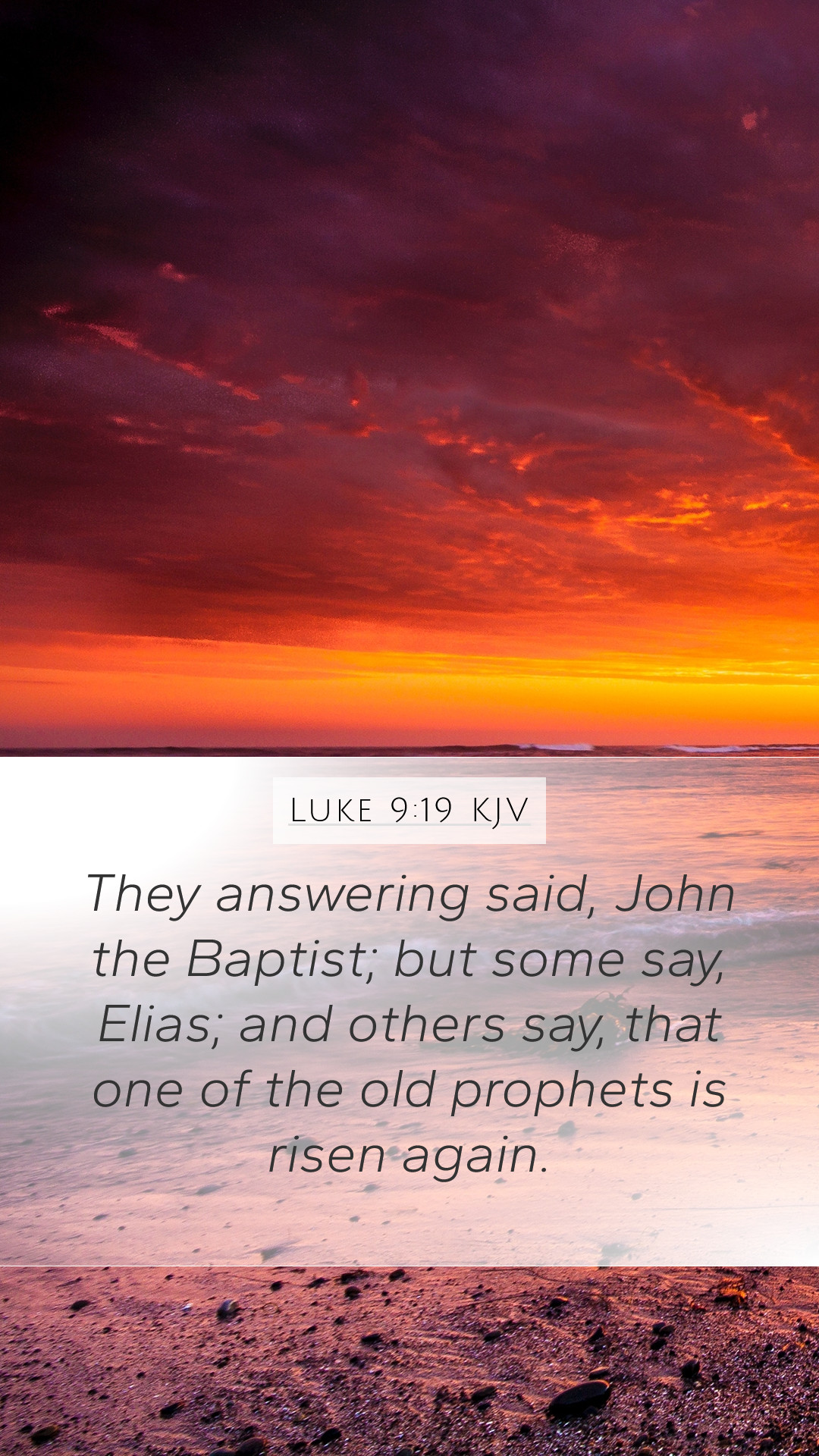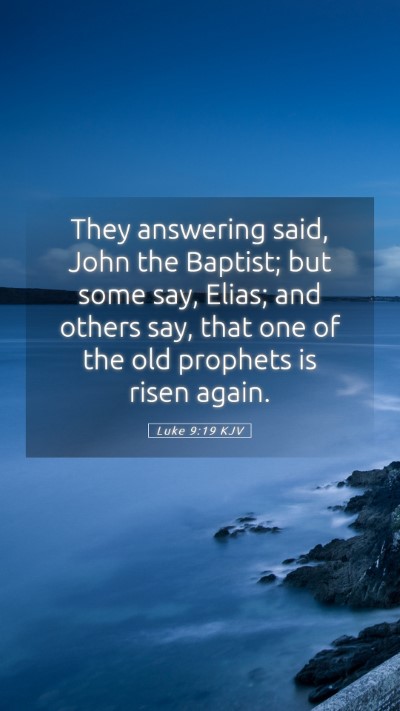Understanding Luke 9:19
Luke 9:19 provides insight into the identity of Jesus as perceived by the people of His time. This verse reads: 'They answered, “John the Baptist; but some say, Elijah; and others say that one of the old prophets is risen again.”'
In this scripture, we observe a significant moment where Jesus inquires about public opinion regarding His identity. This is crucial for understanding both His mission and the varied responses He received from society.
Bible Verse Meanings
This verse highlights the various interpretations of Jesus' identity among the people. The responses reflect a mix of reverence and misunderstanding, showcasing the profound impact of John's ministry and the prophetic heritage in Israel.
Bible Verse Interpretations
According to Matthew Henry's Commentary, the mention of John the Baptist indicates the close link between Jesus’ ministry and that of John, reflecting the continuation of God’s work through prophets. Some believed Jesus to be Elijah, signaling the belief in a return of the prophet who would herald the coming of the Messiah.
Albert Barnes adds that this response shows how the public were grappling with their expectations of a Messiah, often shaped by Old Testament prophecies. The fact that some thought Jesus might be 'one of the old prophets' suggests a recognition of His authority and miraculous works.
Adam Clarke provides an in-depth analysis by reflecting on the cultural and theological context of the responses. He notes that the people’s views are not merely ignorant but rooted in the prophetic expectations of their time and the roles that figures like John and Elijah played in Jewish history.
Key Insights
- Recognition of the Divine: The people's interpretations signify a recognition of Jesus's special role, indicating an understanding of Him as a prophet.
- Messianic Expectations: Their responses reveal the expectations of a political or military leader rather than a spiritual savior, a common misconception of the time.
- Historical Context: Understanding this verse involves exploring the historical context in which Jesus operated, responding to a people heavily influenced by previous prophets.
Application of the Verse
The significance of Luke 9:19 extends beyond its immediate context. It challenges contemporary readers to consider: What is our understanding of Jesus today? Just like the crowds, we may define Jesus in many ways, sometimes shaped by our expectations rather than His teachings.
Bible Study Insights
When engaging with Luke 9:19 in Bible study groups or online Bible study sessions, consider focusing on:
- Who do you say that Jesus is? Discuss personal interpretations and the foundations of faith.
- How do societal views influence our understandings? Analyze the intersection of culture and faith.
- What does this reveal about discipleship? Reflect on the call to recognize Jesus's true identity and mission.
Related Bible Cross References
- Matthew 16:14 - 'And they said, "Some say John the Baptist, some Elijah, and others Jeremiah or one of the prophets."'
- John 1:21 - 'And they asked him, "What then? Are you Elijah?" He said, "I am not." "Are you the Prophet?" And he answered, "No."'
- Malachi 4:5 - 'Behold, I will send you Elijah the prophet before the great and awesome day of the Lord comes.'
Conclusion
Ultimately, Luke 9:19 serves as an indispensable piece of Scripture analysis that facilitates a deeper appreciation of Jesus's identity and the responses He evoked in His followers. It invites modern readers to engage with the text, explore the meaning of Bible verses, and find applicability in their own lives and beliefs.


